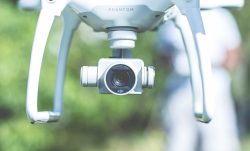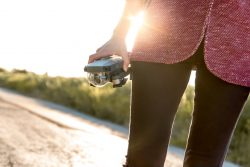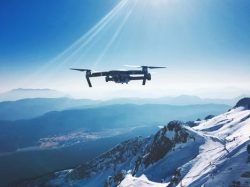Drone Wars
The commercial use of drones by brands and agencies has taken off over the past few years, yet navigating this legal and regulatory landscape is largely uncharted. As drone technology continues to advance through increased capabilities such as GPS, surveillance and live streaming, the commercial use of drones will pose further challenges for both businesses and individuals. As such, it is important to be aware of the following key areas of potential liability.
The Civil Aviation Safety Regulations (CASR)
The CASR are a detailed set of rules governing all aspects of civil aviation.
Under these rules, if you are flying a Remotely Piloted Aircraft (RPA), or drone, for economic gain, you must have an RPA Operator’s Certificate, unless that RPA is under 2kg, in which case you must simply notify the Civil Aviation Safety Authority (CASA).
Additionally, all flights must be conducted in accordance with Part 101 of the CASR and abide by the standard operating conditions. These include that RPAs must not be operated:
- within 30 metres of another person not directly associated with the operation of the RPA (or within 15 metres if the person consents);
- higher than 400 feet (around 120 metres) above ground level; and
- over a populous area (such as a breach, heavily populated park or sports oval while in use).
Failure to comply with these mandatory conditions may result in an investigation from CASA as well as penalties. For example, last year the drone operator of the viral Bunnings sausage sizzle video was investigated for breaches of the CASR and faced penalties of up to $9,000!

“While laws governing unlawful surveillance, stalking and harassment do exist, these laws emerged long before drone technology and would likely not provide reliable protection against inappropriate drone use.”
Privacy
Drones also raise potential privacy issues ranging from inadvertent privacy breaches through the collection of personal information, such as photographs of individuals, to potential conduct that meets criminal-offence thresholds such as stalking. As such, businesses and individuals should be aware of their privacy obligations and rights.
- For businesses:
The Privacy Act 1988 (Cth) (the Act) sets out the Federal statutory privacy regime and for businesses using drones commercially, it is likely they will have certain obligations under the Act surrounding the use of an individual’s ‘personal information’. Generally, businesses should carefully consider the collection, receipt, security and use of any information captured of individuals, as well as ensuring that these individuals are aware their information has been collected.
 “Personal information broadly includes any information about an identifiable individual whose identity is known (or can be reasonably ascertained) from that information.”
“Personal information broadly includes any information about an identifiable individual whose identity is known (or can be reasonably ascertained) from that information.”
- For individuals:
There is no overarching privacy protection for individuals from undue drone use and there appears to be significant gaps in the existing privacy framework. Firstly, the abovementioned obligations do not apply to private citizens or businesses with an annual turnover of less than $3 million and secondly, where any materials are not ‘personal information’, the Act would not offer any protection. Currently, the question of what materials constitute ‘personal information’ in relation to drone use is untested in the courts, further revealing the uncertainty of an individual’s privacy rights under the current regime.
Copyright
 Another consideration for agencies and brands using drones is where copyright ownership lies, will it be with the business commissioning the project or the drone operator? If an agency or brand wishes to use or even licence its own drone, it is more than likely that they would be able to use the photos or images captured at will. However, complications would arise if a business were contracting a third-party operator. In this case, it is vital to have express intellectual property ownership clauses in contracts to protect your business from copyright infringement claims and being barred from freely using any content.
Another consideration for agencies and brands using drones is where copyright ownership lies, will it be with the business commissioning the project or the drone operator? If an agency or brand wishes to use or even licence its own drone, it is more than likely that they would be able to use the photos or images captured at will. However, complications would arise if a business were contracting a third-party operator. In this case, it is vital to have express intellectual property ownership clauses in contracts to protect your business from copyright infringement claims and being barred from freely using any content.
Where to?
Agencies and brands wishing to use drones should carefully consider their position and ensure that they are familiar with the rules applying to their use, particularly when it comes to privacy and copyright. With drone technology continually developing, stay tuned to this space as we will be sure to keep you updated on the latest! Any questions? Just contact us here.
